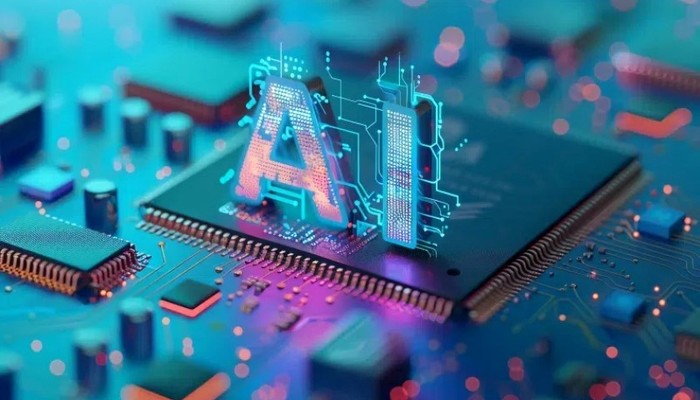
As a new factor of production, data plays a key role in social productivity and has been embedded in all aspects of economic production, distribution, circulation and consumption. As the new generation of artificial intelligence represented by generative artificial intelligence (AI) enters the historical stage, the value and potential of data are further released, becoming a key engine driving technological revolution and industrial change.
On the one hand, digitization and intelligence are continuously injecting vitality into traditional industries, and by opening up underlying data and optimizing resource allocation, cost reductions, efficiency increases, and refined management of the entire chain are achieved; on the other hand, AI technology has given birth to new industries and new industries. model, gradually changing the production structure and development path of the entire society, and shaping the shape of future cities.
Hitachi has accumulated many years of practical experience in the field of digitalization, and is able to flexibly integrate digital technology with various industries and give full play to its innovation advantages, using AI to break industry boundaries and open up new application scenarios and paradigms.
In the context of the new era, companies need to upgrade their strategies, and digital transformation is a good way to leverage growth and help companies go through cycles. Across manufacturing, energy, medical and other fields, Hitachi's digital technology is helping to reshape industrial structures, improve corporate production efficiency and resource management, and promote high-quality future-oriented industrial operation and development.
Under the guidance of the "double carbon" goal, China's photovoltaic manufacturing industry has risen rapidly. However, as the scale of the industry continues to grow, industry competition pressure has intensified, which has put forward higher requirements for enterprise production capacity, technical level and cost control.
Jiangsu Meike Solar Technology Co., Ltd. (hereinafter referred to as Meike) is a high-tech enterprise engaged in the research and development and manufacturing of solar-grade high-efficiency monocrystalline silicon wafers. It is seeking digital transformation solutions in the wave of change in the new energy industry.
After detailed preliminary research, Hitachi tailored a forward-looking "Digital Factory Strategy and Future Digital Vision Blueprint" for Meike, including planning at the technical management level and layout at the corporate strategic level.

Among them, Hitachi Automation Intelligent Warehouse Management System WMS directly addresses the pain points of inventory turnover and management of silicon materials, and helps Meike realize the management of raw and auxiliary materials through functions such as "digitization of document flow", "standardization of data interaction", and "standardization of operating procedures". Delicate management. In addition, the introduction of Hitachi's automated three-dimensional warehouse solution has a linkage effect with the WMS system, improving production efficiency and reducing the occupation of inventory funds by increasing the warehouse turnover rate.
At present, Meike's Baotou and Yunnan factories have completed the introduction of Hitachi's intelligent warehouse management system and automated three-dimensional warehouse solutions. In the future, Hitachi will continue to work with Meike to discuss and customize digital factory solutions such as business data platforms, energy measurement management, and equipment operation and maintenance management.
As a new track for future industries, life sciences is an important force in the development of new productivity. Driven by emerging technologies such as big data, AI and precision medicine, life sciences are achieving leapfrog development. Hitachi Cell Therapy Traceability Platform (HVCT-RM), as a model of "digitization" in the cell and gene therapy industry, can conduct data governance based on business value, implement "end-to-end" data traceability of the entire process of patient treatment, and provide Treatment protects patients while improving process efficiency.
Based on Hitachi's cell therapy traceability platform, at the beginning of this year, the "COI/COC traceability system" jointly created by Chongqing Precision Biotechnology Co., Ltd. (hereinafter referred to as Chongqing Precision Biotechnology) and Hitachi was officially launched. ¹
Chongqing Precision Biotech takes gene editing and synthetic biology technologies as its entry point and focuses on the development and application of gene and cell drugs. Based on enterprise characteristics and process requirements, Hitachi's COI/COC traceability system uses digital technology and precise management to connect different stakeholders (pharmaceutical companies, logistics companies, medical institutions, etc.) to create a compliant, reliable and comprehensive traceability system for cell therapy products. The process traceability platform provides patients with a "high-quality" supply chain.
IDC predicts that by 2030, artificial intelligence will contribute US$19.9 trillion to the global economy, driving global GDP growth by 3.5% in 2030. ²
Although the AI craze has arrived, breakthroughs in technology do not mean that it will be easily implemented. Hitachi found that users still have obstacles when using AI technology, including the lack of early demonstration tools to show the value of the solution, the lack of field data, and the high cost of field development and testing.
In response to complex application problems, Hitachi China Research Institute has created on-site scene creation technology based on digital simulation, building a bridge to reality for AI, and effectively playing the role of AI solutions in industrial digital innovation.
This technology integrates cutting-edge technologies such as 3D scanning, AI-generated content, and digital twins to generate realistic on-site data, create a reasonable on-site environment, provide data foundation and process simulation for the training and development of AI models, and solve the data dilemma problem. and play a role in visually demonstrating AI solutions.
For example, the Hitachi China Research Institute team created a low-cost, high-efficiency simulated warehouse scenario to help customers with non-technical backgrounds intuitively understand the value of the solution. This method not only reduced the difficulty of customers' understanding and acceptance, but also assisted subsequent Data collection in the proof-of-concept stage; the team also uses scene generation technology to quickly generate a large amount of realistic sample data for training the AI system , reducing the difficulty and cost of collecting negative samples, and improving the accuracy and efficiency of the product quality inspection system; in addition, the team also uses digital simulation-based scene generation technology to simulate extreme scenarios and data, optimizing factory safety improvement solutions. The method enables accurate detection of safety hazards even when data cannot be actually collected, improving the comprehensiveness and effectiveness of the system.

Generative AI has become one of the indispensable technologies for innovation and is redefining the boundaries of traditional industries.
Hitachi Manufacturing President and CEO Keiji Kojima commented that the emergence of generative AI is a breakthrough with a significant impact, and it can even be used to divide the history of IT applications into BC and AD.
Kojima Keiji also said that Hitachi will make full use of this technology to provide powerful assistance for "information", "action" and "science".
Artificial intelligence technology, including generative AI, has entered the second half, and diversified applications and running through business logic have become key. As a pioneer in digitally empowering various industries, Hitachi has also deeply explored the practical application of large language models in the pharmaceutical industry.
In the fields of life sciences and biopharmaceuticals, quality management has always been the core link to ensure product compliance and safety. In order to improve the quality management level of Henlius, Hitachi worked together with Shilin Knowledge Platform to introduce AI technology into its QMS system (TrackWise).
The project was officially launched on April 29, 2024. It applies a large language model and integrates professional knowledge to greatly enhance deviation management capabilities. By analyzing deviation descriptions and root causes, and calculating similarities, the system provides a quantitative reference for judging repeated deviations, improves query efficiency, and strengthens attention to historical deviations.
In addition, combined with internal and external knowledge bases, the model can retrieve possible causes of deviations from a large amount of historical data, and provide official defect cases as a reference to help formulate targeted rectification measures. The successful launch of the system not only improved Henlius's production and quality management compliance, but also significantly improved stability and efficiency.
Through practice, the project team also realized that the effective application of large models by pharmaceutical companies not only relies on the model itself or computing power, but more importantly, an in-depth understanding of business scenarios and the accumulation of professional knowledge. This has important implications for the deep integration of large models with the pharmaceutical industry and other industries.
Standing in the era of digitalization and intelligence, Hitachi relies on its technological foresight and industry insights to continue to help companies develop growth points and reshape their future development paths. By building a data-driven ecosystem, Hitachi not only grasps the pulse of the times and helps companies break through transformation difficulties, but also contributes to the global intelligence process and industrial upgrading.
From on-site scene creation technology that breaks through data barriers to AI solutions that empower quality management, Hitachi's exploration and innovation in the AI field continues to promote the intelligent upgrading of various industries and serves as a demonstration for the widespread application of AI. Through digital intelligence transformation and AI empowerment, Hitachi is leading a new round of industrial transformation, refreshing production methods, pushing the industry to break through bottlenecks and move towards a more efficient and intelligent future.